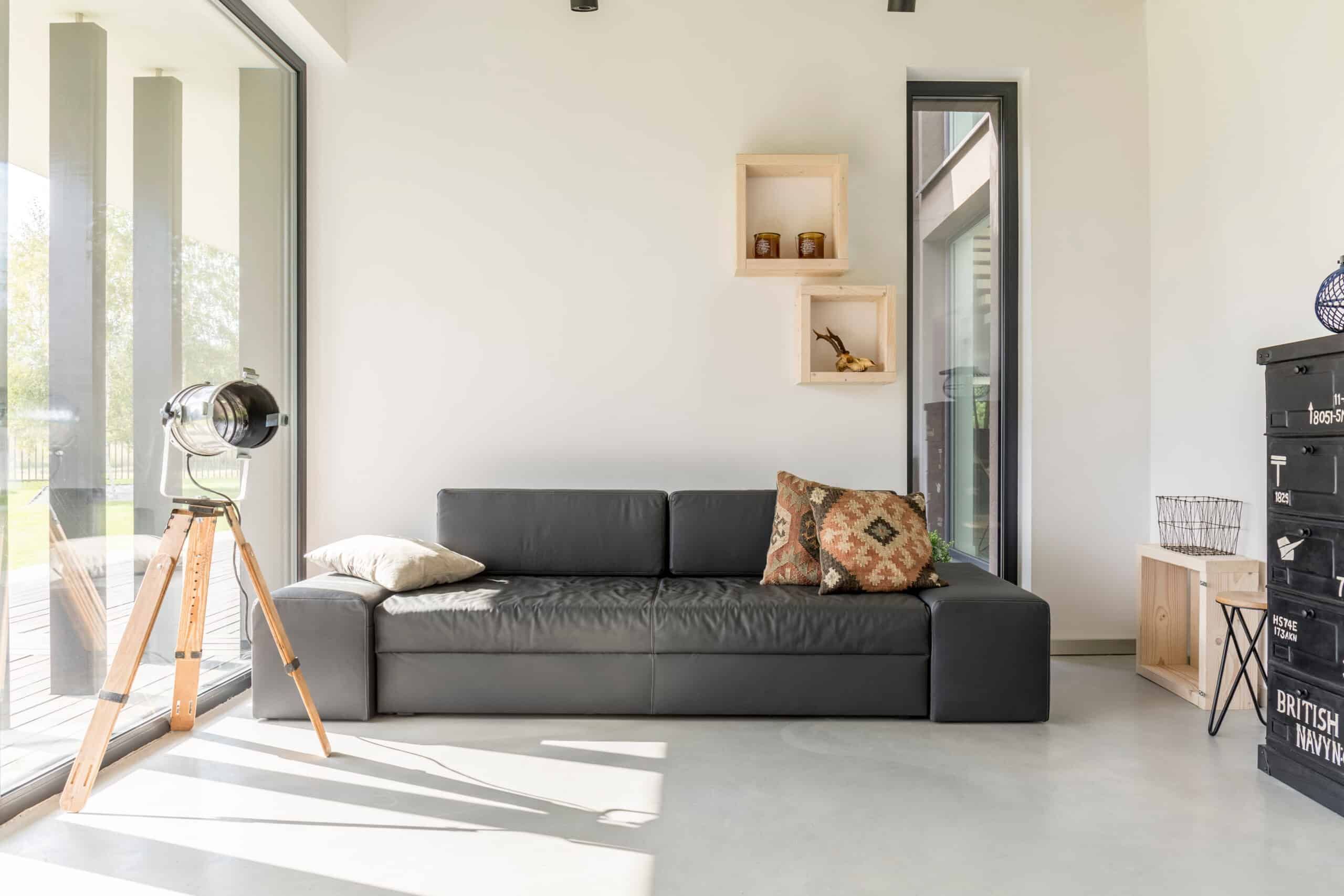
Let the Sunshine in! Brightening Your Home with Natural Light
Waking up to a bright and sunny day can instantly put a smile on our face and lift our spirits and it’s not simply because the sky looks pretty, it’s the transformative, mood-boosting properties of natural light at work. Natural light plays a crucial role in our physical and mental wellbeing, making it an essential consideration when designing our living spaces.
Here we’ll shed some light on the importance of natural light in our homes and uncover not only its physiological benefits but also explore practical strategies to maximise it in your home, especially as sunlight hours decrease during certain seasons.
The human body’s connection to natural light is deeply ingrained in our biology. Our circadian rhythm, also known as our ‘body clock’, is regulated by exposure to sunlight. When sunlight hits our skin it triggers the production of vitamin D, which helps to regulate our sleep-wake cycle, enhance our mood, and boost energy levels.
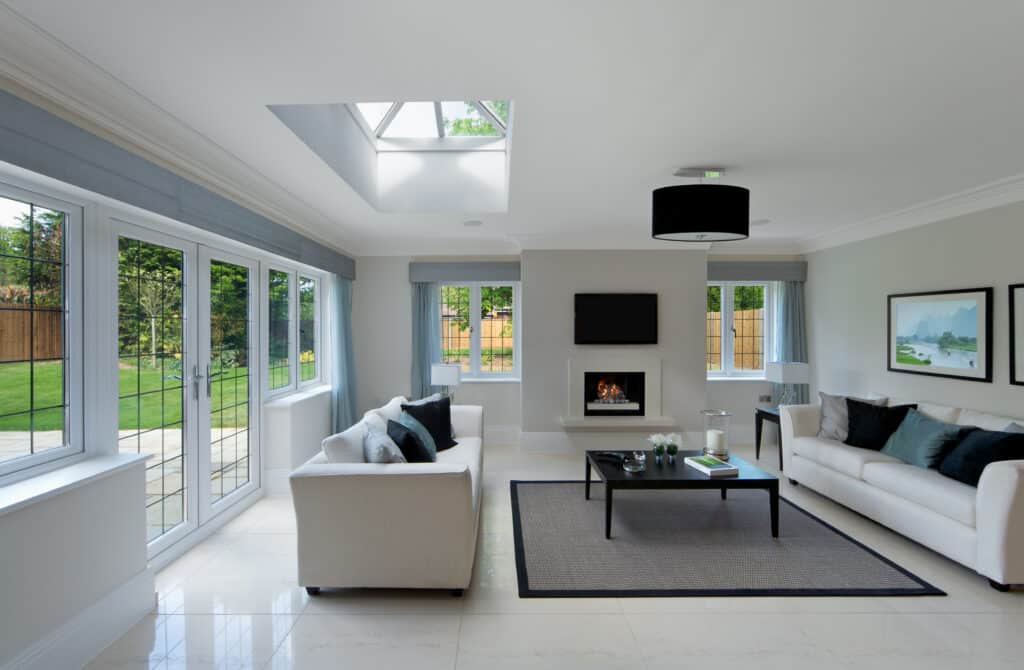
But how do we make sure we soak up as much sunshine and natural light as we can in our homes? Positioning glazing strategically to allow as much sunlight in as possible will have a significant impact. Whether you’re building a new home or embarking on a large-scale renovation, consider the sun’s path as it tracks around your property and think about adding windows and skylights that will not only boost natural light levels but heat the space too.
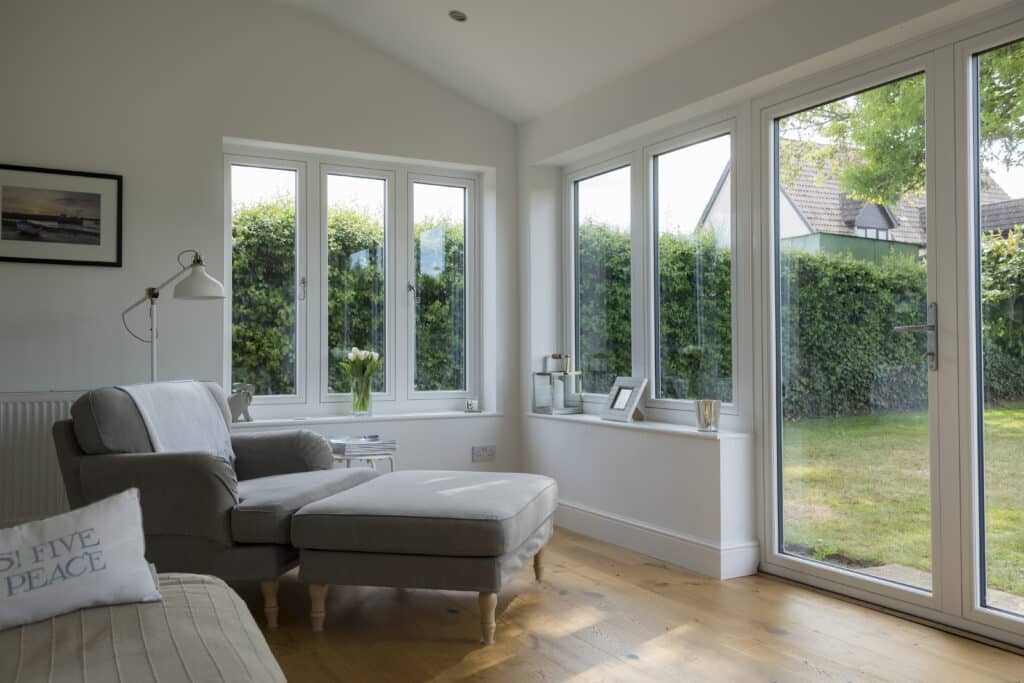
Letting as much light as possible in through windows and doors is key, so we also need to consider the positioning of curtains and drapes to make sure we’re not blocking the light. Curtain rails should be fitted to overshoot the glazing so you can pull your curtains right back and allow the light to flood in. Think about how you decorate your interior too; bright white window sills and reflective surfaces will amplify the natural light and bounce it around the room, making even the smallest of spaces feel light, bright and airy.
Sticking with the interior, think about how you position your furniture to really make the most of the light coming in. By placing your sofa, desk or favourite reading nook close to a window you’ll really benefit from the uplifting effects of natural light throughout the day.
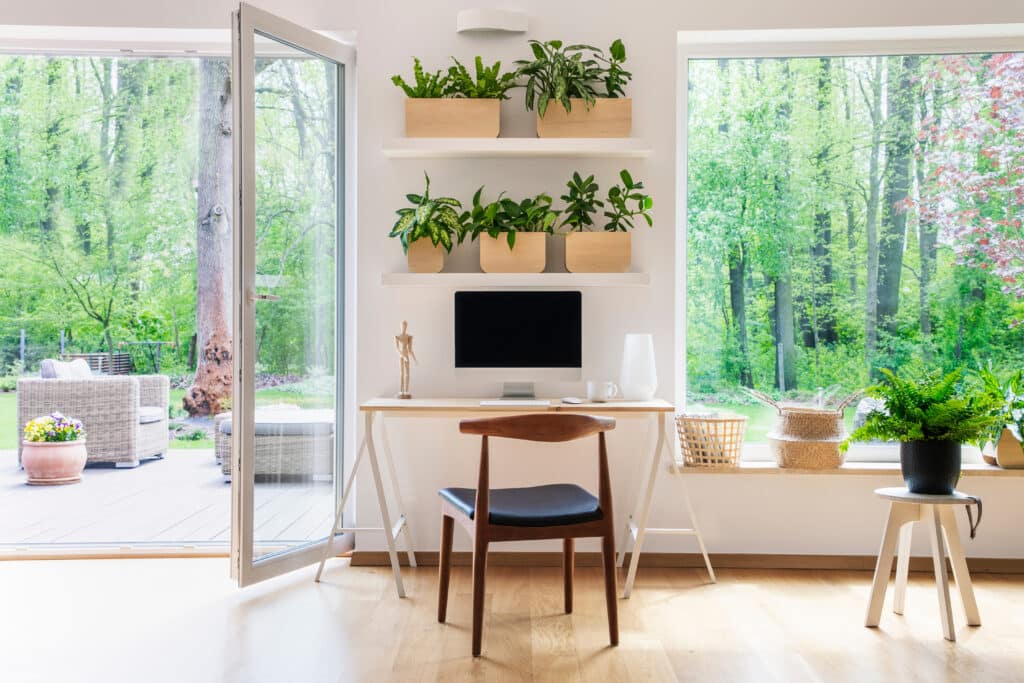
But what about those days when the sun is nowhere to be seen? This is when technology comes to the rescue! Specialist light bulbs and lighting systems designed to replicate the natural changes in daylight are available as more complex smart home products or as a single light bulb. Both options can be programmed to change throughout the day, whether from a mobile app or smart home hub. If you’d rather stick to a more low-tech solution, think about plug-in circadian lamps and place them in areas where natural light plays an important part in your day: next to your bed or in areas where you tend to wind down or wake up.
Another way of enjoying as much natural light as possible is by converting a window into a door. If you have a room overlooking your garden, swapping a window for a door opens up many possibilities, from the practical aspect of easier access, to really making the most of having more sociable space and bringing the outside in. Take a look at our article about how to turn a window into a door. If you don’t have a garden, or the space isn’t quite large enough for a door, a picture window will make your space feel more open, improve your view and create a striking centrepiece. For a real impact choose aluminium frames which are both slimline and strong enough to support larger panes of glass.
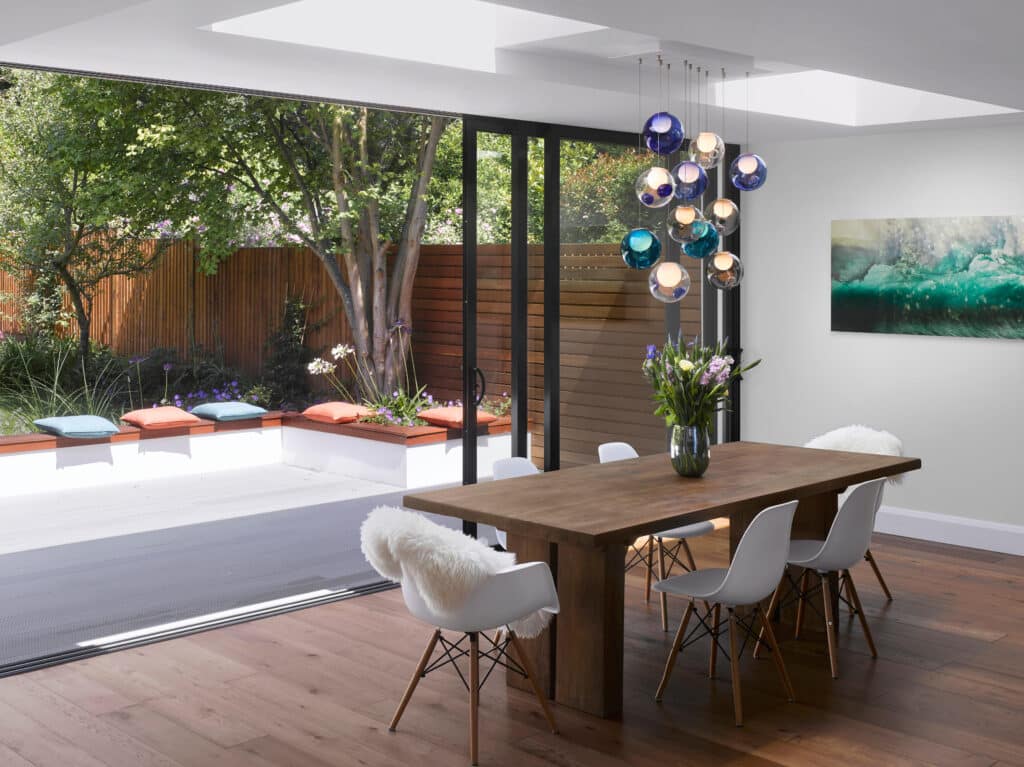
Embracing the power of natural light in our homes goes beyond aesthetics; it can fundamentally improve sleep, mood and energy levels. By prioritising the integration of natural light through thoughtful design, strategic positioning of glazing, and innovative lighting solutions, we can create living spaces that not only look beautiful but also nurture our bodies and uplift our spirits, even on the most dreary of days!